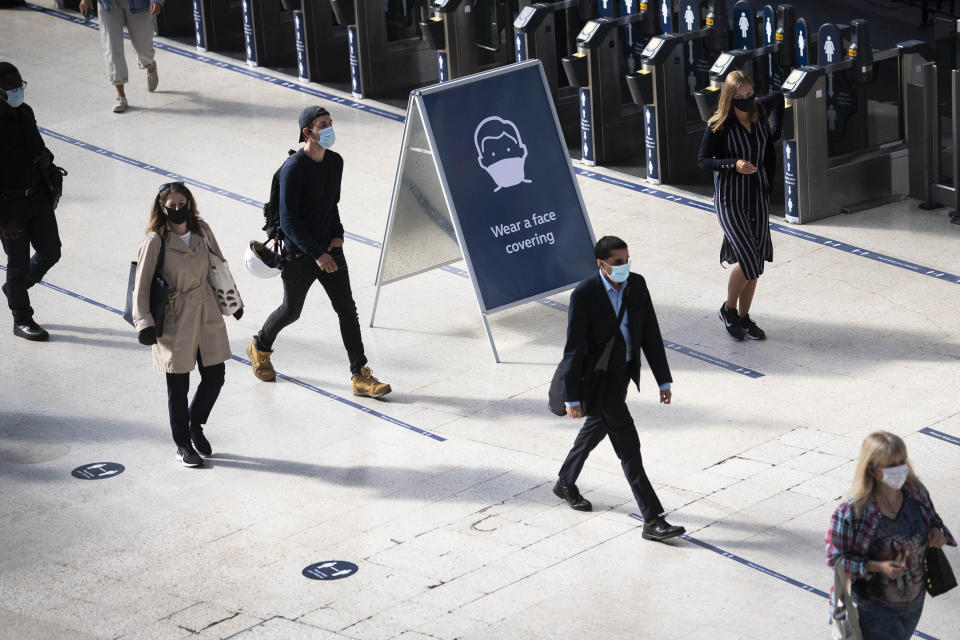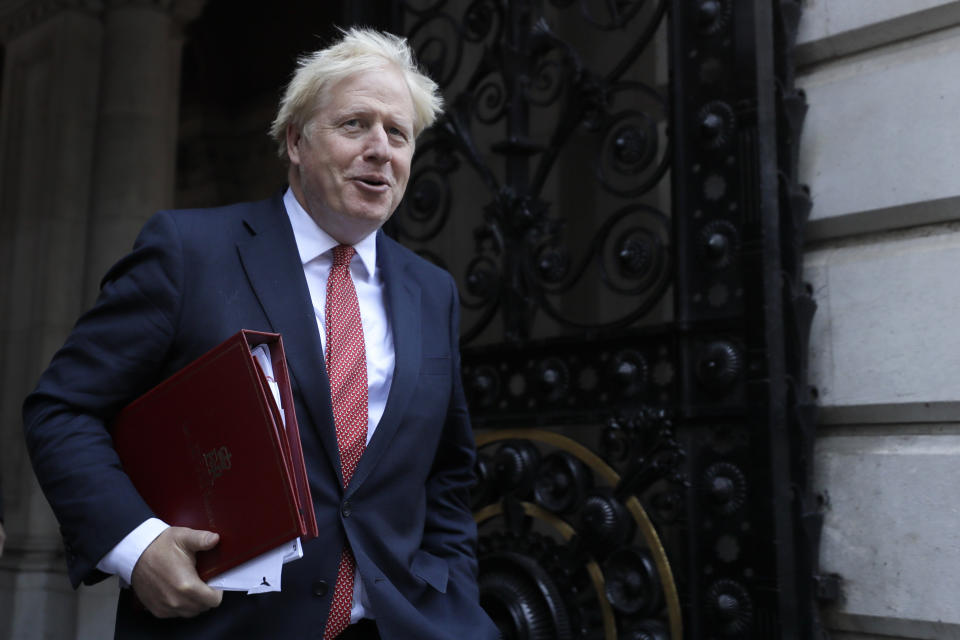UK government faces uphill battle getting people back to offices

The UK government must overcome reluctance among both staff and employers as it pushes to get Brits back into the offices.
Britain lags well behind continental Europe in return to office rates and there is growing concern about the economic impact of extended working from home. City centre employers like Pret A Manger have already cut thousands of jobs and the Confederation of British Industry (CBI) has warned that cities could become “ghost towns” unless normal working patterns resume.
Just 34% of UK office workers are back at their desks, according to a survey published by Morgan Stanley this week. In London, just 29% of workers are back in the office, Morgan Stanley said.
The average across Europe’s five biggest economies is 68%, with the return to office rate as high as 83% in France.
READ MORE: Barclays CEO hints at office 'rethink' post-COVID-19 pandemic
Watch video below
The UK government has launched a push to get people back into offices in response, hoping to close the gap and save inner city economies.
“The message from the PM is he recognises the importance that returning to work has in stimulating the economy,” the prime minister’s spokesperson told lobby journalists on Tuesday.
However, Boris Johnson and his government face an uphill battle. A survey by YouGov last week found 47% of people don’t think employers should be encouraging people back to the office. Just 31% support the government’s push.

While the YouGov survey didn’t break down motivations, health is likely a concern for many. New COVID-19 cases have been creeping up in recent weeks, averaging above 1,000 a day for much of August.
Many workers are also simply enjoying working from home. A global survey by Workvivo, a US software company that helps firms engage with their staff, found 53.6% of people did not want to return to the office, citing commuting as the biggest turn off. Some 90% said flexibility to work from home would increase their loyalty to an employer.
“Clearly we’re now seeing a very tangible and explicit desire and expectation for longer-term flexibility among employees,” John Goulding, the chief executive of Workvivo, said in a release.
READ MORE: Linklaters 'agile' working signals big changes for offices post-COVID
Ultimately, the decision about whether staff return to the office is one for companies rather than employees. But the government faces obstacles here too.
Major employers tend to be slow-moving and risk averse. Many big office-based businesses have already decided to put off returns to the office for now. Royal Bank of Scotland told 50,000 staff in July to keep working from home until 2021 and the likes of Facebook (FB) and Google (GOOG) have also extended the policy into next year.
“With COVID safe guidelines, it’s not possible to use office space, particularly in central London and dense places like that, with the intensity that we used to use it,” Alex Brazier, a policy setter at the Bank of England, told MPs on the Treasury Select Committee Wednesday. “It’s actually not possible to bring lots of people back very suddenly.”
Businesses that are getting back to the office are doing so tentatively. Barclays chief executive Jes Staley has said his company will “rethink” how it uses its offices, while Linklaters, one of the world’s biggest law firms, has announced plans for a permanent “agile” working policy.
Employers have been surprised at just how productive staff have been at home. A shift to more remote working also offers the opportunity to cut costs at a time when businesses are being squeezed. Outsourcing giant Capita recently announced plans to close 100 offices permanently.
“I don’t think we can expect to see a sudden and sharp return of lots of people to very dense office environments that we were used to,” the Bank of England’s Brazier said. “We should expect to see a more phased return.”
Prime minister Boris Johnson on Tuesday said people were “returning to the office across the country in huge numbers.”
Data from Transport for London showed Tuesday was the busiest day for transport usage since 20 March, before lockdown was announced. Usage of the network has increased every week since April.
However, there is still a long way to go. Tube journeys remain 72% below where they were this time last year, while trips on buses are down 53%.
During Prime Minister’s questions on Wednesday, Johnson said the government was “working at pace” with rail companies to create a “flexible” season ticket to encourage people back to the office for at least part of the week.
“With social distancing restrictions to office space and many businesses having seen the benefits of home and remote working in practice, it’s clear that not all workers will be returning to central London offices at once,” said Richard Burge, the chief executive of the London Chamber of Commerce and Industry.
“A hybrid of office and remote working is likely for many firms.”

 Yahoo Sports
Yahoo Sports 